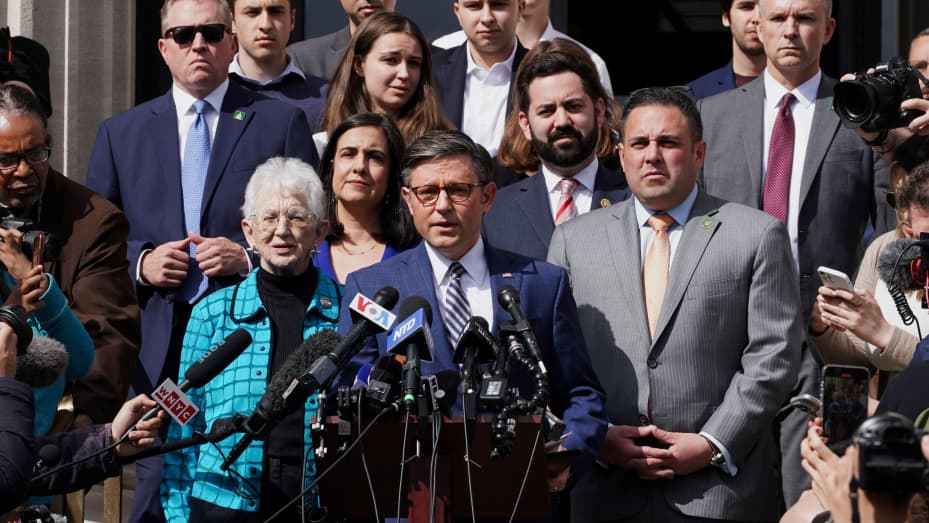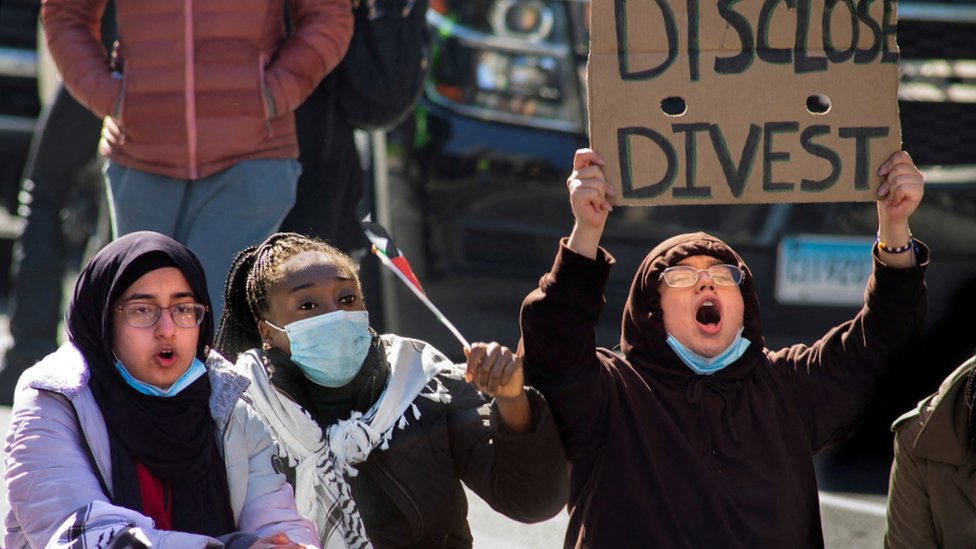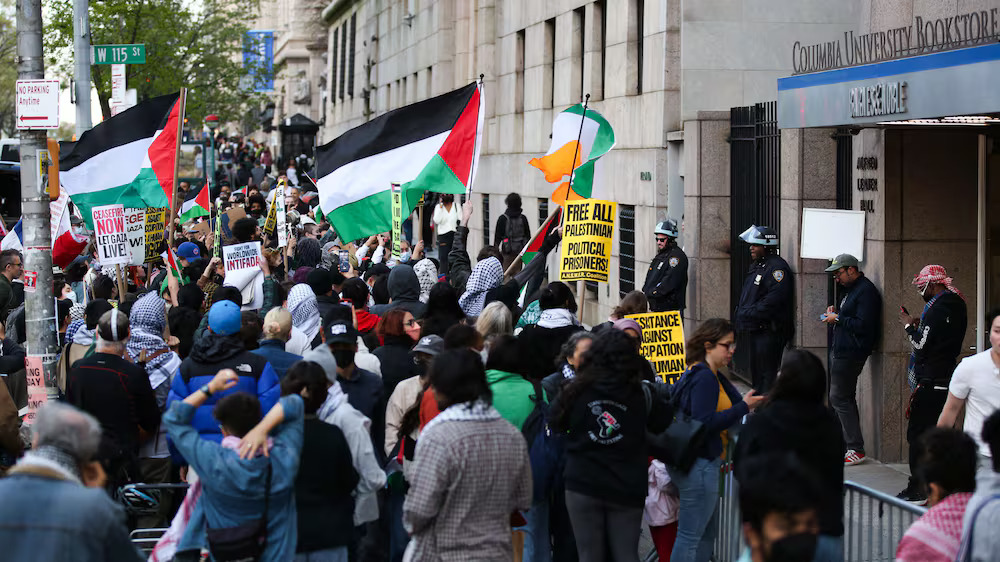Columbia University witnessed tumultuous scenes as House Speaker Mike Johnson faced heckling from students during a visit to address the campus’ ongoing protests over the Israeli conflict in Gaza.
The visit coincided with the university’s decision to grant an additional 48 hours for negotiations to dismantle a protest encampment symbolic of the student movement.
The protests, echoing nationwide sentiments, have seen a mix of activism and law enforcement intervention. In Texas, state troopers in riot gear dispersed a demonstration at the University of Texas, resulting in 20 arrests.

Similarly, the University of Southern California called for police assistance after campus officers were overwhelmed by protesters.
Across the country, demonstrations unfolded at Brown University, the University of Michigan, MIT, and California State Polytechnic, with students demanding divestment from Israel and urging the U.S. government to address Palestinian civilian casualties.
Johnson’s presence at Columbia was met with both vocal opposition and support. He condemned what he termed as “lawless radicals” and antisemitic behavior, pledging consequences for violent protesters and threatening funding cuts for universities failing to maintain order.
The polarized political landscape fueled Johnson’s stance, portraying him as standing against liberal activism.
Amidst the tumult, Jewish students expressed fear for their safety, citing instances of harassment. Johnson met with them privately, acknowledging their concerns.

However, students at the encampment maintained the peaceful nature of their protest, attributing any confrontations to external agitators.
The escalation prompted concerns from free speech advocates like PEN America, denouncing the use of state police to disperse peaceful protests.
The White House echoed calls for peaceful discourse, emphasizing the importance of safety and non-discrimination on college campuses.





